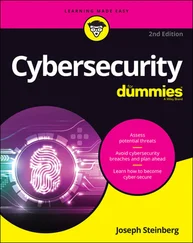Most of the homeschool hassles occur at the local school level. Someone sends out a letter from the superintendent’s office requesting all kinds of information that homeschoolers legally have no obligation to provide, and people get all stirred up. One person calls the state board of education, another calls the legislature, and a third calls a journalist. Before you know it, the school system has a huge mess on its hands, all because somebody got a little nosy.
Situations like this happen every single year in school systems around the country. The same school system usually doesn’t do it more than once or twice (bad press is not good when you rely on the public for funds and you’re seen as oppressing the poor homeschoolers), but it does occur. And it may happen in your community.
Or you may receive a phone call from your local school system demanding information or an interview. Usually the education folks leave the homeschoolers alone because they have plenty to do searching out the true truants. Once in a while, though, you may meet someone on a power trip, or an official who truly doesn’t know what’s going on, and that’s where the misunderstandings begin. If this happens at your house, your best safeguards are well-informed and courteous answers.
 This section is in no way intended to guide you legally. If you need legal advice, your best bet is to contact an education attorney in your area. There is an organization called the Home School Legal Defense Association, but they limit their protection to conservative Christian homeschoolers and a narrow list of issues.
This section is in no way intended to guide you legally. If you need legal advice, your best bet is to contact an education attorney in your area. There is an organization called the Home School Legal Defense Association, but they limit their protection to conservative Christian homeschoolers and a narrow list of issues.
If you know what you’re supposed to do and what you aren’t, you’re already a long way toward resolving any potential conflict. Many times school officials demand to see curriculum, attendance, report cards, testing results — that they may or may not be entitled to by law. In my state, for instance, no one can ask me to show the curriculum I use with my children. (I’m not sure why they’d care anyway, but that’s beside the point.) If someone in an official capacity did ask, and I didn’t know that person well enough to know why they were asking, I would simply parrot my state regulations: “My state law requires this, and this, and this.”
Do I have any personal reasons for not wanting to show my Greek curriculum? Not really, except that nobody outside other homeschoolers or genuinely interested persons needs to paw through my books. It’s not necessary, and it tends to leave fingerprints.
If you’re like most homeschoolers around the country, you know your law a heap better than your local education officials do. Some of them simply assume that because they want to see this or that, you’ll willingly hand it over — they think you don’t know any better. Or they don’t know enough not to ask.
Many areas have so many homeschoolers, and they’ve worked with the homeschoolers for so many years, that the local officials already know the ropes. They’re so used to seeing portfolios and paperwork year after year that they glance through it looking for obvious errors, check it off, and move on to the next one. As homeschooling continues to grow, this will hopefully become the case almost everywhere.
 Your goal is to become familiar enough with your state law that you know what is permissible and what isn’t. Reading through the law (or even a reputable interpretation) may give you enough information to talk about it coherently. Knowing what the law says also helps when you get questions from fellow citizens. Most homeschoolers find themselves hearing all kinds of questions when they meet strangers who realize they teach their children at home. (Some of those questions can be a bit intrusive, and you have no obligation to defend yourself against random nosy or opinionated people.)
Your goal is to become familiar enough with your state law that you know what is permissible and what isn’t. Reading through the law (or even a reputable interpretation) may give you enough information to talk about it coherently. Knowing what the law says also helps when you get questions from fellow citizens. Most homeschoolers find themselves hearing all kinds of questions when they meet strangers who realize they teach their children at home. (Some of those questions can be a bit intrusive, and you have no obligation to defend yourself against random nosy or opinionated people.)
Second: Make sure your ducks are in a row
Make sure that anything the state requires is current. If your state requires an intent-to-homeschool letter or form, then you need to file it by the deadline. That way, if anybody asks, it’s in. (And keep a photocopy for your own records so you know what’s on it and the date that you filed it.)
 A “Gee, we’d really like to see this from you” is not a requirement, and you are only required to do what the law says that you’re required to do. If your state law says that homeschoolers need to register on request from the state education office, and nobody calls your house to ask you to register, then you don’t need to do it. If your state law says that only children removed from a public school need to file form such-and-so, and you began teaching your children from the very start and they’ve never seen the inside of a public school, much less attended one, then that part of the law doesn’t apply to you.
A “Gee, we’d really like to see this from you” is not a requirement, and you are only required to do what the law says that you’re required to do. If your state law says that homeschoolers need to register on request from the state education office, and nobody calls your house to ask you to register, then you don’t need to do it. If your state law says that only children removed from a public school need to file form such-and-so, and you began teaching your children from the very start and they’ve never seen the inside of a public school, much less attended one, then that part of the law doesn’t apply to you.
Only do what you have to do. This isn’t a talent contest or a friendship contest. It’s more like a small business filing the required no-I-do-not-sell-tobacco-products-in-my-store form that arrives each year. The government doesn’t really care whether the small business sells tobacco products; it simply wants to know whether your shop carries cigarettes.
In much the same way, filing the required intent-to-homeschool letter or form each year enters your family into a database, and this is all your state may want from you. Sending test scores, worksheets, and art projects with the intent-to-homeschool letter tends to upset people. First of all, if your state doesn’t ask for this information, it doesn’t want it. Providing extra pieces of paper that the state officials have no means of tracking does not help. It only confuses people: They want to know why you sent the stuff, they have no place to put it, and it languishes on somebody’s desk for weeks because nobody wanted it to begin with and now they can’t remember whom to return it to.
 Don’t bother creating the portfolio to end all portfolios each year. Your goal is to meet your state requirements that prove you actually teach the kids. Adding more than you need to may raise a red flag — either you’re trying to hide something or you need more to do during the day. And basically, when you give the state complete access to everything you do, you allow an invasion of privacy. Why hand over more information than anyone asks of you?
Don’t bother creating the portfolio to end all portfolios each year. Your goal is to meet your state requirements that prove you actually teach the kids. Adding more than you need to may raise a red flag — either you’re trying to hide something or you need more to do during the day. And basically, when you give the state complete access to everything you do, you allow an invasion of privacy. Why hand over more information than anyone asks of you?
I know that I said it before, but it bears repeating here. Knowing your state law gives you both freedom and security. It gives you freedom because you know what you can and cannot do. If the law says teach 180 days, it’s not a suggestion. You’re free to teach more than 180 days if you want to, but not less.
In much the same way, knowing your law gives you security. When you know you’re doing what you’re supposed to, it releases much of the stress that comes from uncertainty. If you live in a state that requires a portfolio, for instance, and you know the portfolio days are coming, then you prepare for it by taking snapshots of field trips and projects throughout the year.
Some state laws provide several options for homeschools. If your state provides two or three legal options, choose the one that makes the most sense for your family. In some cases, for example, enrolling with a private umbrella school releases you from some of the paperwork non-enrolled families file each year.
Читать дальше

 This section is in no way intended to guide you legally. If you need legal advice, your best bet is to contact an education attorney in your area. There is an organization called the Home School Legal Defense Association, but they limit their protection to conservative Christian homeschoolers and a narrow list of issues.
This section is in no way intended to guide you legally. If you need legal advice, your best bet is to contact an education attorney in your area. There is an organization called the Home School Legal Defense Association, but they limit their protection to conservative Christian homeschoolers and a narrow list of issues. Your goal is to become familiar enough with your state law that you know what is permissible and what isn’t. Reading through the law (or even a reputable interpretation) may give you enough information to talk about it coherently. Knowing what the law says also helps when you get questions from fellow citizens. Most homeschoolers find themselves hearing all kinds of questions when they meet strangers who realize they teach their children at home. (Some of those questions can be a bit intrusive, and you have no obligation to defend yourself against random nosy or opinionated people.)
Your goal is to become familiar enough with your state law that you know what is permissible and what isn’t. Reading through the law (or even a reputable interpretation) may give you enough information to talk about it coherently. Knowing what the law says also helps when you get questions from fellow citizens. Most homeschoolers find themselves hearing all kinds of questions when they meet strangers who realize they teach their children at home. (Some of those questions can be a bit intrusive, and you have no obligation to defend yourself against random nosy or opinionated people.)










